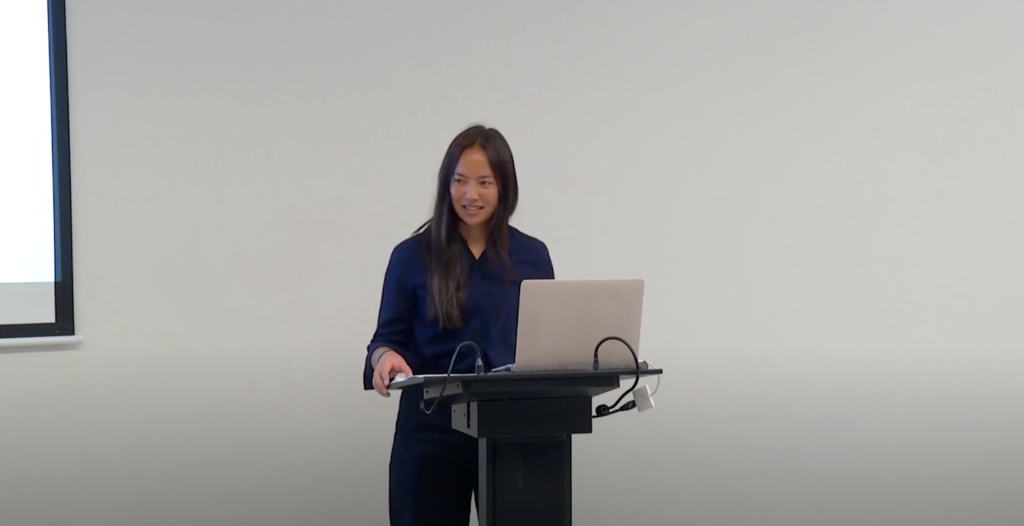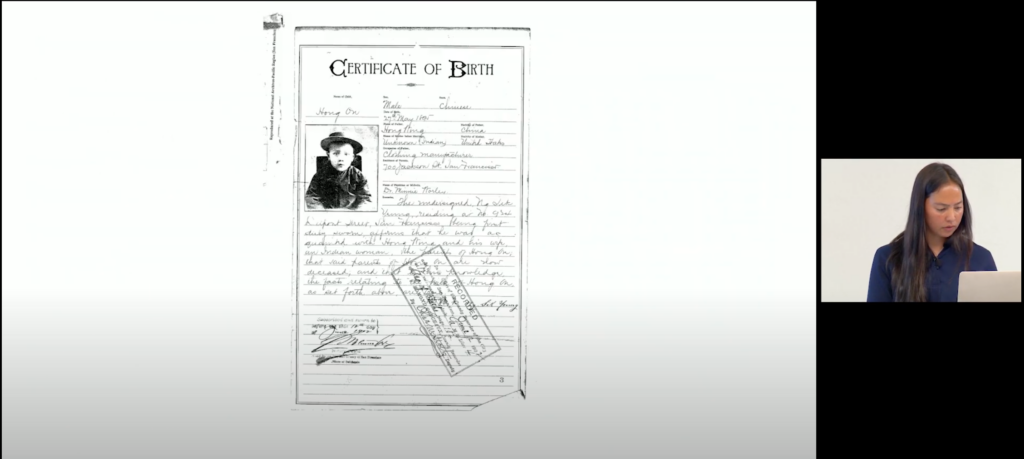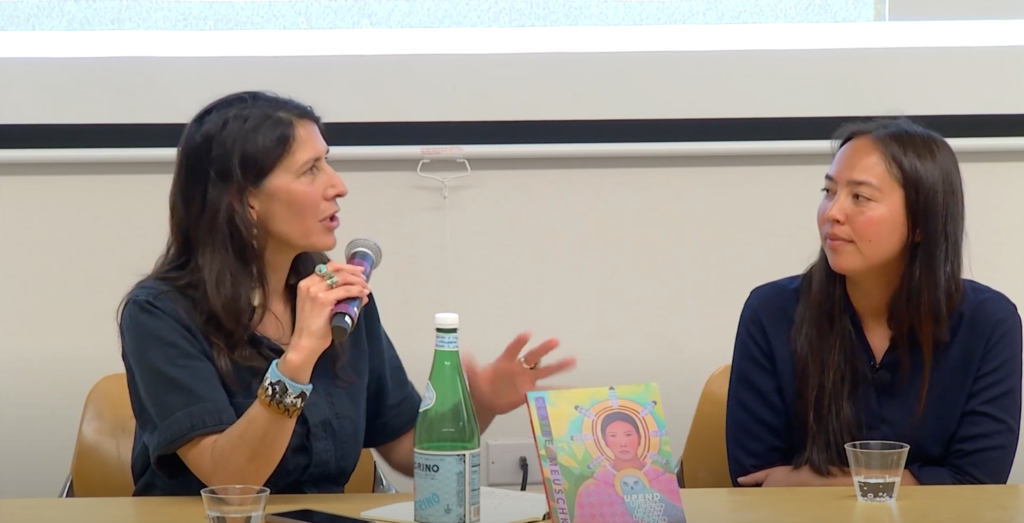by Eva Whitney, April 5, 2023
Poet Claire (Meuschke) Hong visited the Arts Research Center on March 2, 2023 for a craft talk following her reading through the Lunch Poems series. The full recording of the craft talk is available for viewing on ARC’s YouTube channel, here, and the Lunch Poems reading is available for viewing here.

How are archives and agriculture linked? How might the public site of an archive give way to private revelations? What is a coincidence? On March 2, 2023, Claire (Meuschke) Hong visited the Arts Research Center to give a craft talk, setting out to explore these questions in a speech about her writing process and current book project. The talk, titled “Living in Squalor: Regenerative Agriculture and Revisioning Ancestral Sites,” detailed Hong’s experience working on agricultural farms, her current project of tracing her grandfather’s experience immigrating to the Bay Area, and her interest in archives, fragments, scraps, and saving. Hong’s talk unfolded slowly and organically, in a way that her conclusions had resonance without being stated explicitly; as she said: “I’m more concerned with […] what noticing allows than major events […] It’s the mystery within parameters that moves me.”
Hong’s upcoming book focuses on the word “squalor.” First overheard on a radio program describing the mistreatment of Chinese immigrants in San Francisco’s Gold Rush era, the word caught her attention. She appreciated its “defined parameters and generous, thematic malleability, regenerative agriculture, and the reclamation of dirt, ancestral grave sites and the prejudiced views of [her] ancestors past and present.” The word “holistically encapsulated [her] life’s work and focus.” As a farmer, “squalor” is connected to her interaction with dirt and as the granddaughter of immigrants, the word had a different edge to it, describing how marginalized laborers are perceived as “dirty” or living in squalor, while at the same time feeding their communities from this same dirt.

Hong’s talk was paired with a slideshow
ARC director Beth Piatote noted in their discussion that artists have periods of production and fallowness, much like a farm. Her writing and agricultural work had depleted her. Discovering the word “squalor,” however, brought momentum into her life. Hong turned her energy to archival work, setting out to uncover details of her grandfather’s immigration trial on Angel Island, tracing her ancestral history in the Bay Area. What she stumbled upon—in ways that felt coincidental—was an anecdote of her great-grandfather “fetching flowers out of nowhere for rich white men,” or a record of her great-grandmother suffering from domestic abuse. Hong finds “relief to find validation of [her] ancestors’ existence” and yet pain in the way they were recorded—and uncertainty as to if it were truly her ancestors that were being written about. As she said: “The coincidence of finding my great-grandfather as an introductory anecdote felt generative while finding my great-grandmother in the inventory note felt extractive.” Tension arises between engaging with familial history, uncovering truths about her ancestors, and also exploring archives as a hobby, looking at the past objectively.

ARC Director Beth Piatote in conversation with Claire Hong
As a self-described “poet of excess,” Hong collects these fragments and lets them percolate, naturally finding their way into her poetry. She compared herself to a ghost plant, a parasitic wildflower that survives off “the dialogue between tree roots and fungi”—a witness to the small exchanges between things. Visiting gravesites, working on farms, and combing through historical documents is generative for Hong—engaging with the tangible world nourishes her writing practice. What began with a single word has expanded exponentially, becoming a reconciliation with the past, with writing, with memory, and with coincidence.
Bio: Eva Whitney is an undergraduate at UC Berkeley studying comparative literature. Born and raised in San Francisco, she attended Ruth Asawa School of the Arts for creative writing and has been immersed in the city’s art scene her entire life. She has led poetry workshops at 826 Valencia, been a gallery assistant, currently runs a creative writing publication through the Comparative Literature Department at UC Berkeley, and works as ARC’s communications assistant. Her work has been featured in NYU’s brio Literary Journal and BAMPFA’s Student Committee Film Festival.
